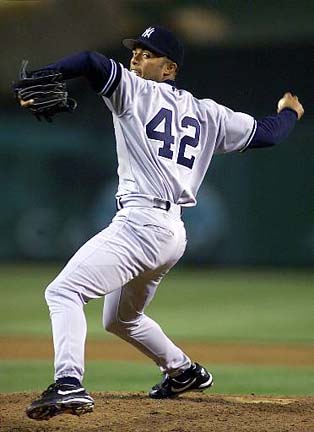
What most characterizes a good pitcher is not blazing speed. Rather it is consistency, “control” as it commonly known in the game, the ability to repeat the same arm motion again and again and spot the ball exactly where he wants on the plate. Never down the middle of the strike zone where any mediocre hitter could clobber it, but all around the edges: low and outside, up and in, and—maybe most important of all—with varying speeds, so the batter never knows what’s coming next. A pitcher who can do most, or all, of these things, is a true ace.
Similarly, a successful writer is not all about flamboyance, or writing something topical, or dazzling the reader with wit and being “clever”. Oh Lord! What a death-knell! To be told your writing is “clever”!
A good writer needs to be in it for the long haul, needs to have a plan, and be committed to the plan and stick to it, even when “roughed-up”, with bases-loaded so-to-speak, by writer’s block, domestic obligations, Internet distractions, time-pressures, self-indulgence, flailing confidence—whatever. The list of bogey-men is endless.
In writing Lunatics I have striven to be like my idealized pitching ace. I have tried to be patient with the work, stick to the plan, get neither too high nor to low when the work encountered little successes or difficulties.
For someone like me, the greatest danger may have been the temptation to rush. It is my natural tendency when things begin to go awry. To speak more quickly, to make decisions more quickly, to act, to do SOMETHING, for fear that diminishing time may rob me of the power to do ANYTHING at all, no matter how misguided.
It is typical of rookies, I’m told—this tendency to rush when things get “hairy”, or when the end is in sight. Even cows in the field are like this, quickening their pace as the barn door comes into sight, and the promise of warmth and a night’s feed.
I just recently finished the first draft of Lunatics. It did, in fact, turn out to be a big struggle not to run for the barn door as I was working on the final pages. I desperately wanted to squeeze in essential details to the story. And I had such an overwhelming sense that the story was ready to end now. Not a month from now or two, not with an additional twenty or forty pages of work but now. The rhythm of the process just seemed to cry out with increasing urgency that it was time.
But was it?
The best relief pitcher in baseball is Mariano Rivera of the New York Yankees. He is the epitome of calm out there on the mound. The specialist called in to preserve his team’s lead, to record the win. To bang in the final nail in the coffin of the opposing team’s hopes. Never rushed, always self-assured, always sticking to the plan—that’s Mariano Rivera.
Strangely, the man has only one kind of pitch, but he throws it with such quality and such consistency and such accuracy that it is largely un-hittable.
If I were the Mariano Rivera of writers, I would likely still be working on the first draft. I would be courageous and confident, not wondering about the final outcome of the game, focusing instead only on the very next pitch/page. I would not be worried whether or not I had included in the story all the elements I wanted, nor agonizing over whether the writing was any good, and how others would judge my performance.
But I am not Mariano Rivera so I have done all those things.
First draft done.
Final score not yet in.
